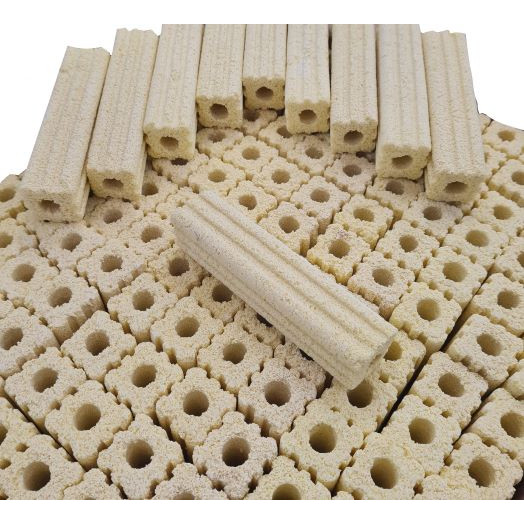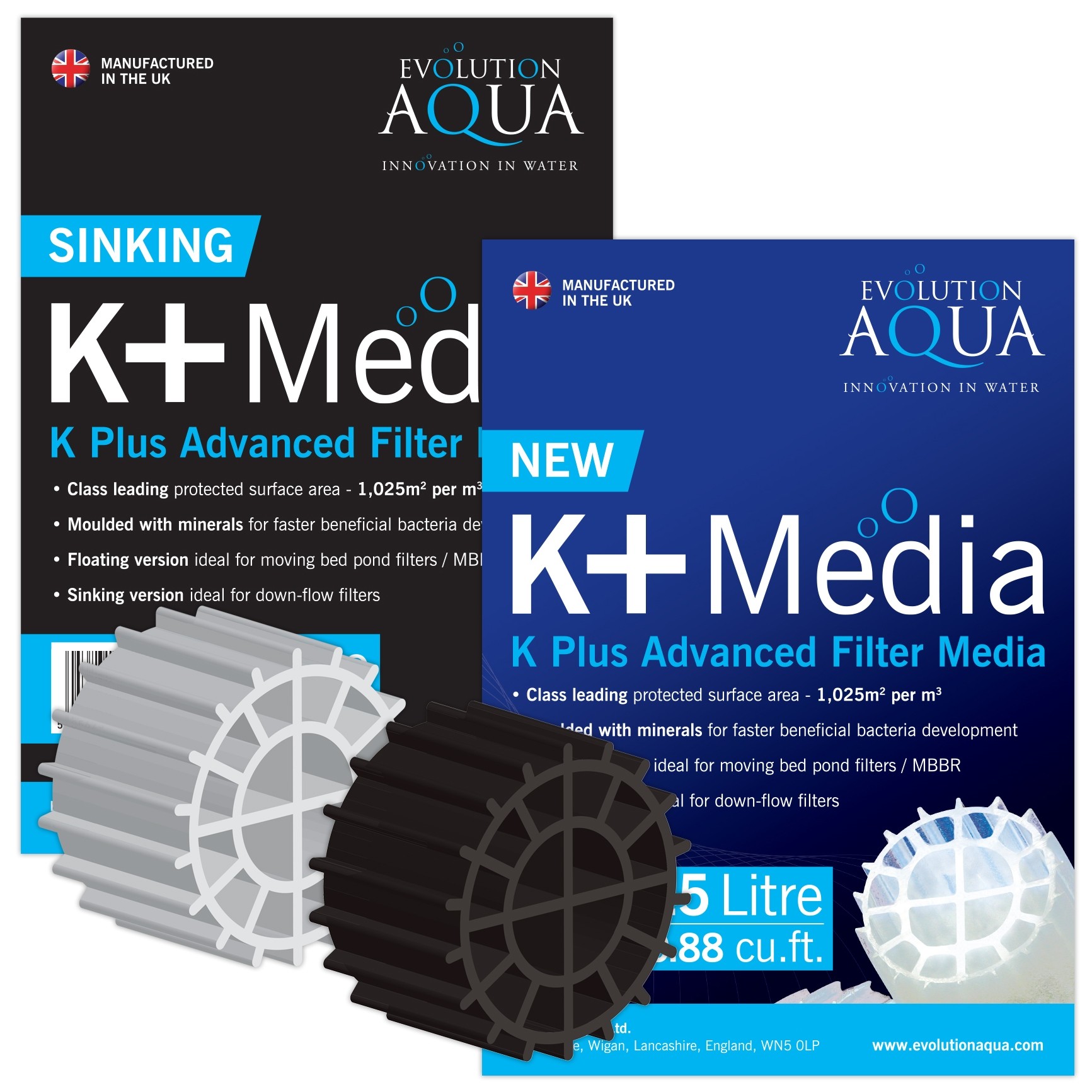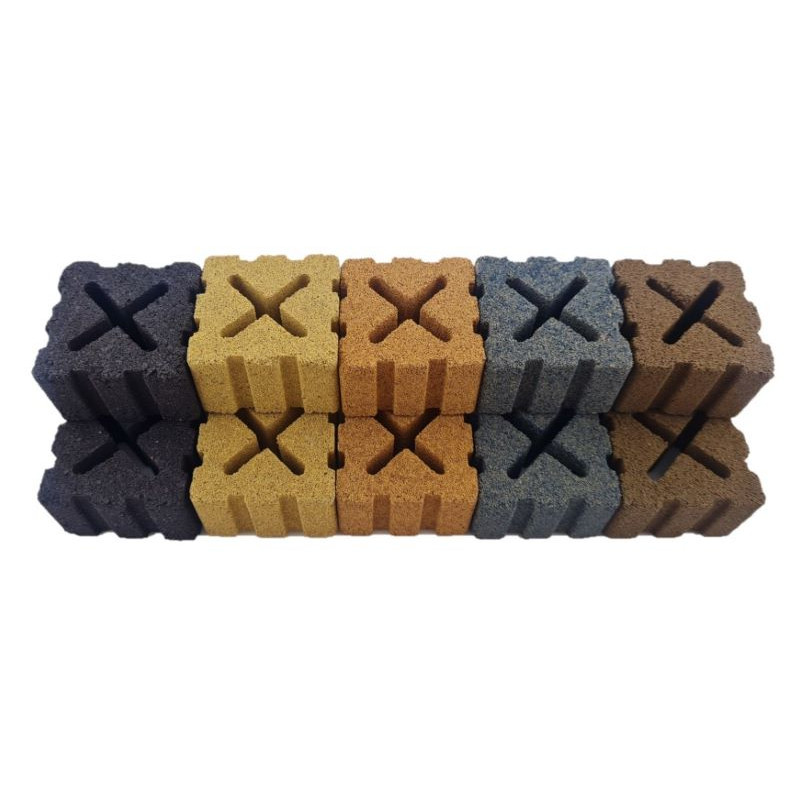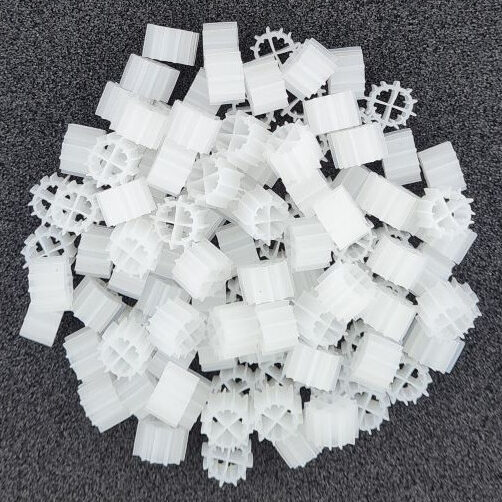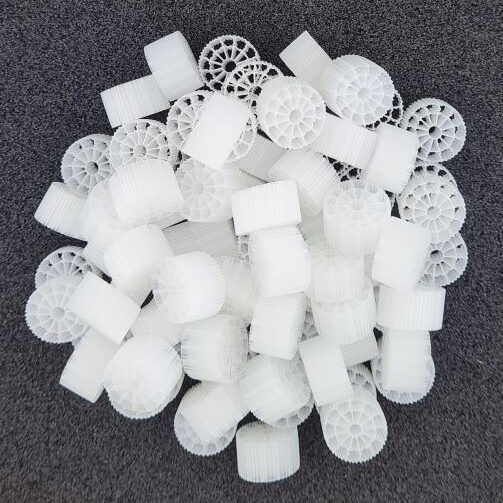Pond Filter Media – Frequently Asked Questions
Below, we’ve compiled a list of frequently asked questions to help you understand the importance, functionality, and benefits of filter media for maintaining clean and healthy pond ecosystems.
1. What is pond filter media, and why is it important?
Pond filter media refers to the material used in pond filtration systems to remove debris, particles, and harmful substances from the water. It provides a surface area for beneficial bacteria to colonize, promoting biological filtration and helping to maintain optimal water quality and a balanced pond ecosystem.
2. What are the different types of pond filter media?
There are several types of pond filter media available, including:
- Biological Filter Media: These media provide a habitat for beneficial bacteria that break down organic waste and harmful substances in the water. Examples include bio-balls, ceramic rings, and sponge pads.
- Mechanical Filter Media: Mechanical media trap debris and particles from the water, preventing them from clogging other filtration components. Examples include filter pads, filter floss, and filter brushes.
- Chemical Filter Media: Chemical media absorb or adsorb dissolved pollutants and contaminants from the water, such as ammonia, nitrites, and heavy metals. Examples include activated carbon, zeolite, and phosphate remover.
3. Why is biological filter media important for pond filtration?
Biological filter media are essential for pond filtration because they promote the growth of beneficial bacteria that break down organic waste and harmful substances in the water. These bacteria play a crucial role in maintaining optimal water quality, controlling algae growth, and supporting the health of fish and other pond inhabitants.
4. How do I choose the right pond filter media for my pond?
When selecting pond filter media, consider factors such as the size and volume of your pond, the type of filtration system you have, and your specific filtration needs. Choose media that are compatible with your filtration system and capable of providing the desired level of mechanical and biological filtration.
5. Can I use multiple types of filter media in my pond filtration system?
Yes, you can use multiple types of filter media in your pond filtration system to achieve comprehensive filtration. Combining different types of media, such as biological, mechanical, and chemical media, helps address various pond issues and ensures thorough water purification.
6. How often should I clean or replace pond filter media?
The frequency of cleaning or replacing pond filter media depends on factors such as pond size, stocking density, and environmental conditions. Generally, it’s recommended to clean mechanical media regularly to prevent clogging and replace biological media periodically to maintain optimal bacterial colonization and filtration efficiency.
7. How do I clean pond filter media?
To clean pond filter media, rinse mechanical media thoroughly with pond water or tap water to remove debris and sediment. Avoid using chlorinated water, as it can harm beneficial bacteria. For biological media, gently rinse with pond water to remove excess debris, avoiding excessive cleaning that may disrupt bacterial colonies.
8. Can I use pond filter media in both freshwater and saltwater ponds?
Yes, many types of pond filter media are suitable for use in both freshwater and saltwater ponds. However, it’s essential to select media that are compatible with your specific pond environment and water parameters to ensure optimal filtration and water quality.
9. Are there any natural alternatives to commercial pond filter media?
Yes, there are natural alternatives to commercial pond filter media, such as lava rock, pea gravel, and natural sponge. These materials can provide surface area for bacterial colonization and mechanical filtration, although they may not be as efficient as commercial media in some cases.
10. How do I know if my pond filter media are working effectively?
You can monitor the effectiveness of your pond filter media by regularly testing water parameters such as ammonia, nitrites, nitrates, and pH levels. Additionally, observe water clarity, fish behavior, and plant health to assess overall pond condition and filtration efficiency.
If you have any further questions or require assistance in selecting the right media for your pond, don’t hesitate to get in touch.






